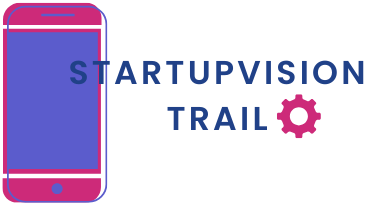Table of Contents
ToggleIn a world where software is as essential as coffee, SaaS companies have brewed up a storm. They’ve transformed the way businesses operate, offering everything from project management tools to customer relationship management—all without the need for a hefty upfront investment. Forget about the days of clunky installations and endless updates; with SaaS, everything’s just a click away.
Overview Of SaaS Companies
SaaS companies provide software applications over the internet, making them easily accessible. This delivery model offers flexibility, allowing users to access services from anywhere with an internet connection. Solutions span various industries, with applications in project management, customer relationship management, and accounting.
Accessing SaaS platforms typically occurs through a subscription model, reducing upfront costs. Monthly or annual payments enable businesses to scale services according to their needs. Numerous companies, including Salesforce, Zoom, and Dropbox, exemplify the diverse range of SaaS offerings available today.
Integrating these services into daily operations can lead to improved productivity and reduced IT resource requirements. Many SaaS solutions feature regular updates, ensuring users benefit from the latest developments without additional costs or manual installations. Security measures often include encryption and robust access controls, helping businesses meet compliance requirements.
Collaboration tools prevalent in SaaS applications support remote teamwork, enhancing communication and project tracking. Analytics and reporting features assist businesses in making data-driven decisions without heavy investments in infrastructure. With the continued growth of cloud computing, the SaaS industry is set to expand further, providing innovative solutions tailored to evolving business needs.
Choosing a reliable SaaS provider involves considering factors like scalability, customer support, and integration capabilities. Organizations benefit from evaluating user reviews and case studies to identify suitable platforms. As the landscape evolves, SaaS continues to redefine how companies operate and enhance their processes.
Benefits Of SaaS Companies
SaaS companies deliver numerous advantages that significantly enhance business operations. Two key benefits include cost-effectiveness and scalability.
Cost-Effectiveness
Cost savings represent a primary advantage of SaaS solutions. Companies avoid substantial upfront investments in hardware and software, opting instead for a subscription model. Monthly or annual subscriptions often reduce financial strain, providing budget predictability. Providers frequently include updates, maintenance, and support in their packages, further decreasing costs. Instead of managing complex installations, businesses can quickly deploy applications, improving resource allocation. Various industry reports indicate that organizations using SaaS enjoy reduced IT expenses, streamlining operations and increasing profitability.
Scalability
Scalability remains another crucial benefit of SaaS applications. Businesses can easily adjust their service plans according to current needs. This flexibility supports growth without the drawbacks of traditional software. Companies can scale up or down rapidly, adapting to changing demands and market conditions seamlessly. Adding or removing users typically involves simple clicks rather than complex procedures. Many SaaS providers offer tiered pricing structures, allowing organizations to select tiers that match their requirements. As companies expand or downsize, this adaptability ensures they retain essential services while optimizing costs.
Challenges Faced By SaaS Companies
SaaS companies encounter multiple challenges in today’s fast-paced digital landscape. Data security and market competition pose significant concerns for businesses operating under this model.
Data Security
Data security remains a top priority for SaaS companies. Protecting sensitive customer information from breaches requires robust security measures. Encryption, access controls, and regular audits are essential practices. Compliance with regulations like GDPR and HIPAA adds another layer of complexity. Customers demand transparency about data handling practices. Any security incident can harm reputation and erode trust. Continuous monitoring and updates to security protocols help mitigate risks. Staying ahead of potential threats is vital for maintaining user confidence.
Market Competition
Intense market competition challenges SaaS providers to differentiate themselves. The rapidly growing industry sees new entrants consistently offering similar services. Companies must focus on innovative features and exceptional customer support to stand out. Pricing strategies play a crucial role in attracting and retaining clients. Building brand loyalty through excellent user experience is equally important. Ongoing marketing efforts are necessary to maintain visibility in a crowded market. Adapting to changing customer needs can lead to sustainable growth. Successful companies leverage partnerships to enhance service offerings and expand reach.
Leading SaaS Companies In The Industry
SaaS companies play a crucial role in delivering innovative software solutions and transforming business operations. Here are some leading players in the SaaS landscape:
Company A
Salesforce stands out as a leader in customer relationship management (CRM) solutions. This platform assists businesses in managing their customer interactions efficiently. With a flexible subscription-based model, Salesforce offers a range of customization options tailored to various industries and business sizes. Users benefit from real-time analytics, automation tools, and extensive integration capabilities that streamline sales and marketing efforts. Its robust ecosystem fosters collaboration, making it a preferred choice for sales teams worldwide.
Company B
Zoom has become synonymous with online communication and collaboration. The platform facilitates video conferencing, webinars, and virtual events, catering to businesses of all sizes. A user-friendly interface allows for seamless engagement among remote teams, promoting effective communication. Zoom’s cloud-based architecture ensures reliable performance and scalability during high-demand usage. Features like screen sharing and breakout rooms enhance collaboration, making it a vital tool for organizations navigating remote work.
Company C
Dropbox revolutionizes file storage and collaboration with its cloud-based platform. This service enables users to store, share, and access files from any location, promoting greater efficiency in teamwork. A straightforward interface allows for easy document sharing, version control, and synchronization across devices. Integrations with numerous third-party applications enhance Dropbox’s functionality. Security measures, such as file encryption and two-factor authentication, further protect sensitive data, making it a trusted choice for businesses looking to streamline their workflows.
Future Trends In SaaS Companies
Emerging technologies significantly shape the future of SaaS companies. Artificial intelligence (AI) integration will enhance user experience, providing tailored solutions that adapt to individual needs. Companies increasingly utilize machine learning algorithms for predictive analytics, offering insights that drive smarter decision-making.
Another trend is the rise of vertical SaaS solutions tailored for specific industries. Instead of one-size-fits-all offerings, these targeted solutions meet unique requirements, optimizing functionality for sectors such as healthcare, finance, and real estate. Businesses benefit from specialized features that address their particular challenges.
Increased focus on data security is paramount. Companies prioritize advanced encryption methods and compliance with regulations like GDPR. This commitment helps safeguard sensitive information and builds trust with users, essential for sustained growth in a competitive landscape.
Collaboration tools will continue to evolve. Enhanced features promote seamless interaction among remote teams, fostering productivity through integrated communication channels and project management tools. Users embrace these tools for their flexibility and accessibility, making everyday tasks more efficient.
Subscription models are also shifting. Many companies adopt usage-based pricing structures, allowing customers to pay only for the services they actually use. This approach enables organizations to optimize costs and aligns with their evolving needs.
Finally, the integration of Internet of Things (IoT) technology into SaaS offerings is on the rise. As devices become interconnected, SaaS platforms will enable businesses to collect and analyze data from various sources, generating valuable insights that enhance operational efficiency. This innovative approach positions SaaS as a crucial player in the future of business technology.
SaaS companies are reshaping the landscape of modern business operations. Their ability to provide flexible and scalable solutions has made them indispensable for organizations seeking efficiency and cost savings. As the industry continues to evolve with advancements in AI and IoT, businesses can expect even more innovative tools tailored to their specific needs.
The focus on data security and customer support will remain critical as competition intensifies. By leveraging user feedback and adapting to market demands, SaaS providers can build lasting relationships with their clients. Ultimately, embracing SaaS not only streamlines processes but also positions companies for sustainable growth in an ever-changing digital world.





